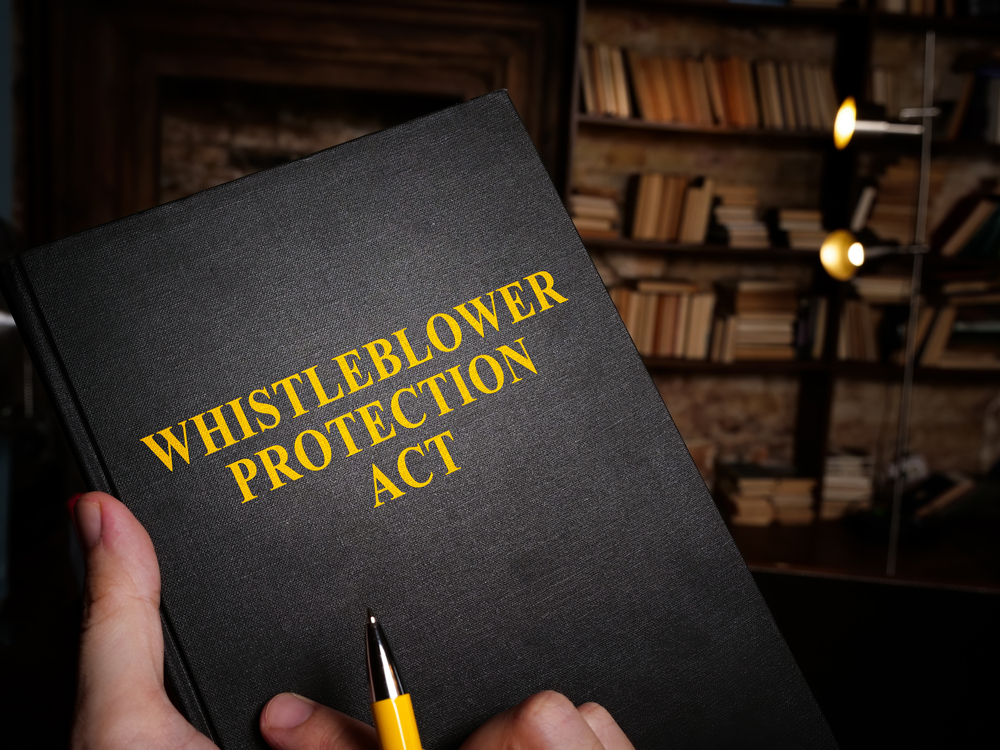 In 2012, Tax Court Rule 345 was adopted to allow tax whistleblowers to remain anonymous. The whistleblower must file a motion with the Court that provides specific facts which support the request to proceed anonymously. The motion itself and subsequent filings are temporarily sealed until the Court rules on the motion. The whistleblower must show that the potential harm to the whistleblower outweighs the public’s interest in knowing the whistleblower’s identity.
In 2012, Tax Court Rule 345 was adopted to allow tax whistleblowers to remain anonymous. The whistleblower must file a motion with the Court that provides specific facts which support the request to proceed anonymously. The motion itself and subsequent filings are temporarily sealed until the Court rules on the motion. The whistleblower must show that the potential harm to the whistleblower outweighs the public’s interest in knowing the whistleblower’s identity.
Until recently, there was a lack of case law related to whistleblower protections. But in Judge Kroupa’s recent rulings, she has protected multiple whistleblowers’ identities due to a variety of reasons from death threats to professional ostracism. Judge Kroupa found that the severe risk of harm to the whistleblowers outweighed the public’s interest in open judicial proceedings.
Two of the cases involved employees raising concerns about tax fraud by an employer. That employer (“Target”) had ties to terrorists and organized crime. Both whistleblowers faced death threats and intimidation while they were working with the Internal Revenue Service.
In her Memorandum Opinion, Judge Kroupa stated that the whistleblowers had been forced to hire armed security experts to advise their families when they were travelling abroad. She also noted that the Target had ties to terrorist organizations, had broken into the whistleblower’s office, and had threatened the whistleblower’s life.
Judge Kroupa noted that generally court records should be open to the public, but that the rule was not absolute. Courts are given broad power to seal the records if they might be used for an improper purpose. If the records contain patents or confidential information, or if there is a risk of physical harm, it may be appropriate to seal the record in a particular case. But, as Judge Kroupa noted, it takes more than annoyance or harm to one’s personal reputation to seal a court record. Judge Kroupa noted that the whistleblowers had submitted an affidavit demonstrating the severe degree of harm to the whistleblowers if the record wasn’t sealed.
The whistleblowers also asked to proceed anonymously. In order to do so, the whistleblowers had to prove that the harm he faced outweighed the public’s interest in knowing his identity.
Considering that the whistleblowers had been threatened and harassed and that the Target had ties to a terrorism, Judge Kroupa sealed the record and allowed the whistleblowers to proceed anonymously in order to protect the whistleblowers’ personal safety, professional reputation and economic interests.
In another ruling, Judge Kroupa erred, “…on the side of caution…” and granted a whistleblower’s request for anonymity even when there was no concern about links to terrorism or threats of physical harm.
In that noteworthy case, the whistleblower was a retiree and requested to proceed anonymously because of concerns that he would suffer professional ostracism, job-related harassment, and that the former employer could terminate or withhold the whistleblower’s retirement benefits.
Even though Judge Kroupa was skeptical about the potential harm, she granted the whistleblower’s request to proceed anonymously and found that the whistleblower had satisfied the factual burden under Rule 345.
Although the case law interpreting Rule 345 is scant, it appears that whistleblowers will be protected in a wide variety of circumstances.
Free Case Evaluation
More About HHK
Other Whistleblower Law News
Lawsuits involving Medicare fraud are making headlines regularly. Investigators frequently expose and charge people with healthcare fraud, yet billions are still lost each year.



